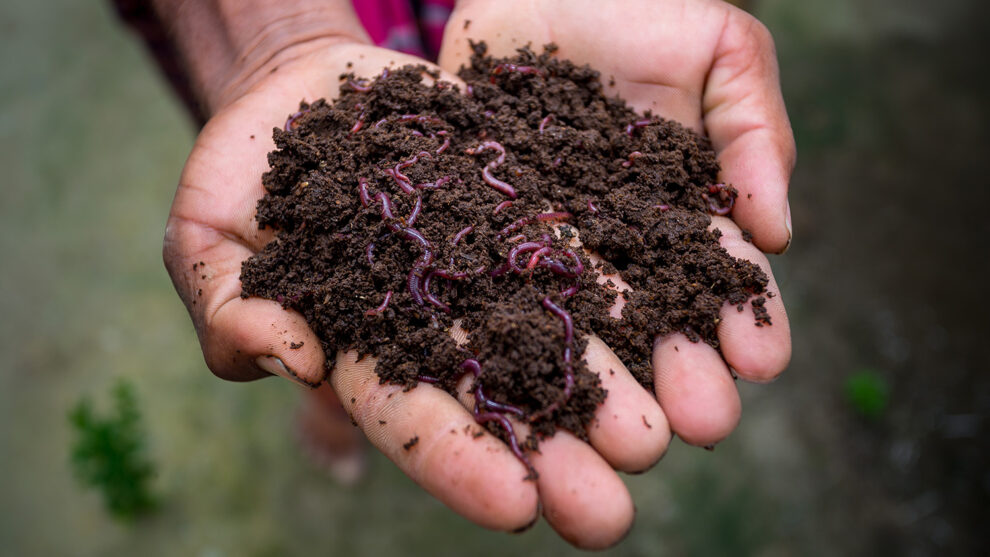Most circles and discussion regarding effective home-sustainability touches upon Vermicomposting. This is one of the most popular methods of managing organic waste within your home! However, its popularity has also exposed worm composting to rumours and myths. When it comes to sustainability, it’s crucial to separate fact from fiction. In this blog, we’ll be debunking some myths surrounding this eco-friendly system:
1. Worms Are Harmful to Plants
One prevailing myth is that the worms used in vermicomposting can harm plants. In reality, the opposite is true. Red wiggler worms, commonly employed in vermicomposting, enhance soil fertility. Their digestive process produces nutrient-rich castings, a potent organic fertilizer. These castings are filled with beneficial microorganisms that promote plant growth, improve soil structure, and increase water retention. Far from being harmful, worms are invaluable allies in maintaining a healthy and thriving garden.
2. Vermicomposting Emits Odors
Another misconception is that vermicomposting is synonymous with unpleasant odors. This myth likely stems from traditional composting practices that can produce strong smells if not managed correctly. However, vermicomposting, when done properly, is virtually odor-free. The specific conditions required for the worms to thrive also discourage the growth of foul-smelling bacteria. This makes worm composting an ideal solution for those concerned about potential odors associated with traditional composting methods.
3. It’s Complicated and Time-Consuming
While vermicomposting is a complete functioning system, setting it up is easy! Following the tutorial and support from your worm composter manufacturer can help set up and maintain this system. Worms are low-maintenance creatures, requiring minimal attention. Once the system is established, it becomes a self-sustaining cycle of waste conversion. Far from being a time-consuming task, vermicomposting can seamlessly integrate into various lifestyles, providing a continuous supply of nutrient-rich compost with minimal effort.
4. Only Vegetable Scraps Can Be Composted
The scope of worm composting expands beyond vegetables! A diverse range of kitchen scraps, including coffee grounds, eggshells, and even small amounts of paper, can be added to a worm composter. While it’s important to avoid citrus peels and large quantities of acidic or oily foods, vermicomposting allows for a broader range of waste materials than one may think.
Now that you are free from these common myths, your journey into vermicomposting can begin with confidence! Take the first steps with the well-designed systems of Vers L’avenir worm composters! Welcome your home garden to the silent caretakers – Red wiggler worms – today!








